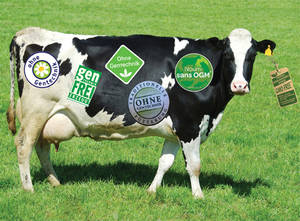Actualités
|
GMO-free labelling
Conference shows real demand from consumers and practical solutions
The conference has shown that the issue of GMO-free labelling has gained a lot of importance and momentum. There is a wide diversity of initiatives, actors, practices and rules that are being taken and need now to be promoted and harmonised in order to allow EU wide distribution and recognition of GMO-free products.
After the failure to include mandatory labelling of GMOs for animal products in the 1829/2003 regulations, pressure has mounted from all sectors for information on the use of GMOs in animal feed and the possibility to choose food from GMO-free fed animals. Against the lack of information that EU law provides for, bottom-up approaches have been undertaken, leading to a wealth of experiences that the Commission needs now to take into account to propose a practical, understandable EU GMO/GMO-free label. Such a label cannot be restricted to plants.
The first roundtable showed that successful initiatives to supply GMO-free products have been undertaken at all levels of the food chain, with presentations from an international retailer, a dairy producer and an animal feed producer. These initiatives that meet consumers’ demand do indeed succeed, but need a facilitating regulatory framework.
The diverse regulatory frameworks for GMO-free products in the EU were the subject of the second roundtable. There are so far 3 practical national regulations on GMO-free labels, in Austria, France and Germany, with some differences that mean these labels are not equivalent. In Netherland and Finland, the legislation is such that it prevents any GMO-free labels. Hungary is in the process of looking at the existing legislation in order to “take the best of them” to write one. And the Commission acknowledges that the private initiatives and the national regulations, either existing or in development, warrant that it moves on the issue. It is a welcome recognition that finally comes after years of denying the need for such information on GMO feed.
The Conference made it clear that information on whether animals are GMO fed or not is a legitimate and strong demand from consumers and that GMO-free labelling initiatives are possible and increasing, leading to practical national regulations allowing for meaningful labelling. However, there is now a pressing need for an EU-wide regulation on GMO-free labelling in order to avoid unfair competition within Europe and allow intra-EU GMO-free clear and workable labels. The Greens/EFA group will press the Commission to come up with a practical regulation in its current mandate and will campaign with citizens’ group all over Europe to make GMO-free products recognisable.




